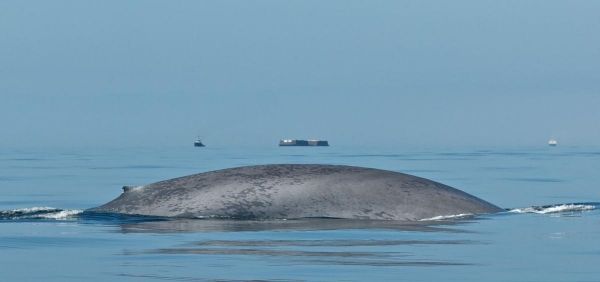Researchers using electronic tags were able to monitor blue and fin whales off the coast of Southern California over multiple weeks, providing new insight into the feeding behaviors of the two largest whale species. The researchers also found evidence of differences in the feeding intensity and habitat use of males and females of both species.
“The information collected with these tags gives us a good description of the scale of whales’ feeding behavior over periods of hours, days and weeks, which is something we’ve not been able to do before,” said Ladd Irvine, a senior faculty research assistant in Oregon State University’s Marine Mammal Institute and the study’s lead author.
The whales fed mostly during the day, usually in short bursts lasting one to two hours, but would also feed continuously throughout the daytime, and in rare circumstances for an entire day.
“We were able to quantify feeding bouts, which are periods of uninterrupted feeding, and found that the duration of feeding bouts correlated with another measure of feeding success - the number of prey capture events, known as feeding lunges,” Irvine said. “That means the whales stayed longer in areas where they fed more. This allowed us to make inferences about the profitability of feeding patches, as whales should stay in an area and feed longer where prey is abundant and move on when prey becomes scarce.”
Read more at Oregon State University
Image Credit: Oregon State University


